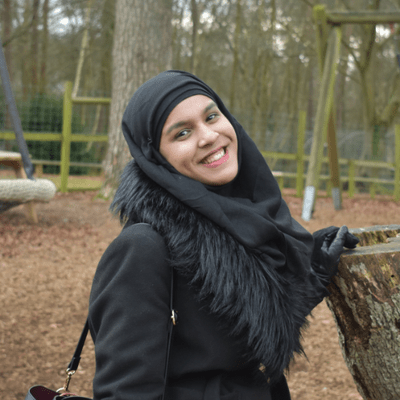As universities have scrambled to get to grips with their own approaches to reopening campuses in the era of Covid-19, have they been overlooking one key space for a significant proportion of their student population?
Indeed, the spaces we predominantly think about when it comes to the university experience in light of Covid-19 have heavily focussed on learning and teaching spaces. This is particularly the case as a whole body of academic and professional service staff had to quickly adapt to online learning and provide their services via these digital spaces.
More recently however, the university space garnering the most attention has been student halls of residence, where Zachary Spire astutely calls out the way in which students have been treated like prisoners and Student Minds have urged a stop to measures which disproportionately penalise students, despite posing no greater threat.
Praying for the best whilst expecting the worst?
Whilst all of these issues are rightly important in themselves, I fear that issues that are concerns for under-represented groups and their student experience are (once again) being neglected and relegated to the side-lines. As a Muslim doctoral student also working in a higher education institution, one of the first things that played upon my mind was “What (if any) provision would be taken to the Muslim Prayer Room on campus?”
I remained less than hopeful that much would be done as being a part of minoritized group often means a lifetime of accepting structures that do not accommodate for you and a constant state of “satisfied settling”.
Muslim prayer rooms (in addition to chapels and multi-faith prayer spaces) play a strong role within the lives of religious students; their worth and place may be underrated by some institutions, particularly where religion has a complex and misunderstood place within universities at large.
The importance of prayer
For Muslim students in particular, prayer has been identified as one of the most important part of their lives which they do not wish to compromise as students. This has often been the case however, with my own research into Muslim student experience showing how some have often resorted to praying in library corners, empty teaching spaces, and even using public bathrooms to perform wudhu (ablution).
Such already undignified practices were apparent pre-Covid, so is this just a question of how will the issue become exacerbated under Covid? With some university websites still stating outright closure of their prayer room facilities, where does this leave religious students at large and how does this disproportionately affect forms of prayer that are much more performative (such as salat/namaz) and require physical space?
All in good faith
It’s already likely that Muslim students are acutely aware of the precarious position their prayer spaces hold on some university campuses – be it due to being the space conveniently left out of university refurbs because a lick of paint will suffice, or the surveillance and scrutiny Muslim students face thus inhibiting their right to exercise student voice.
Therefore, universities must see it as a duty to recommit to an ethos which values every student, including their presence and beliefs – with prayer rooms being front and centre by enacting and considering the following:
A matter of mental health, wellbeing and sense of belonging
Student mental health and wellbeing has been at the forefront of universities’ promises to safeguard in how they manage the virus. However, we must see prayer rooms and wider faith provisions as directly related to religious students’ mental health and wellbeing. Praying is a form of meditation and being unable to perform this obligatory duty leads to an invisible weight upon the shoulders of religious students.
Just as Gurnam Singh identifies that the virus does discriminate against BAME populations and will likely mean that BAME students are the recipients of higher levels of disadvantage (many of whom may come from minoritized religious backgrounds), the simple provision of appropriately catering to religious spaces will lessen the sense of alienation and lack of belonging that has consistently noted.
Communication is key
As with most Covid-related guidance, its effectiveness is only actualised if communicated properly. Just as mosques and other places of worship have been made Covid-safe, Muslim students understand that these spaces will look and operate differently. However, we should remind students why prayer mats may have been removed (for example) and use multiple communication methods for informing worshippers of appropriate conduct.
Muslim voice/representation as central
Finally, we must listen to our Muslim students. This can be done via liaising with Islamic Societies/Student Networks as well as any officers within studens’t unions/guilds/association who may actively represent Muslim and other minoritized religious groups. Involving students in consultation of these spaces is crucial as they are the experts of their experience.
Making Muslim students feel they are loved and cared for by actively considering the space they hold so dear, especially during these times, can only have positive impact – as poignantly stated by bell hooks, the practice of love can undo the work of oppression.




















As a disabled member of staff I find finding disabled toilet floors flooded and slippery on Fridays due to those performing ritual cleansing (wudu) when facilities are provided on campus unacceptable. Though by the number of prayer mats we find in Fire Escapes, and from discussion with some followers of Islam, there are a number who cannot/will not use the facilities associated with the prayer rooms, often due to being from the wrong sect or wishing not to be associated with the hard-liners who’ve taken over the prayer room. That they invite radical preachers from London and Birmingham to preach,… Read more »
MashaAllah , Very well guide for the readers , God bless you
Very informative article, I like the way you explain the context. JazakAllah for sharing these helpful material.
Very informative content, this is so knowledgeable, mashaAllah you have a great knowledge about Islam.